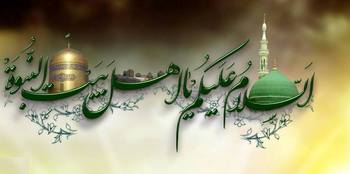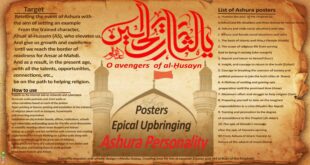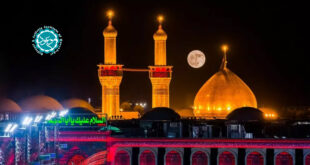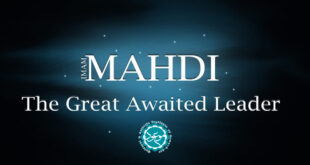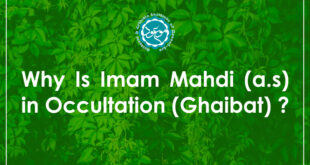Truthful and Honest
Muhammad [s], right from his childhood was known for his virtue and lofty conduct and was far removed from the prevalent vices of the day like idolatry, dishonesty, drinking, gambling, cowardice etc., which were the hallmarks of the Makkan society. His noble character stood him out as the most impeccable one ever, to the point that his people called him ‘as-Sadiq’ (the Truthful) and ‘al-Amin’ (the Honest). They put their complete trust in him and always turned to him as an impartial judge in their frequent disputes.
He was a born believer whose heart was free from the filth of disbelief and polytheism. Never had the boy been near idols let alone worship them. The All-Knowing Allah, Who had singled out the child for the greatest task and blessings that lay ahead, had inspired Muhammad’s [s] young heart with His Greatness, Power and Majesty. His pristine purity was indicative of his future greatness, for how could people believe in him and put their trust in him if they see him prostrating before manmade objects and indulging in vices like any ordinary Arab of the day. Surely, none would have responded to his call to Islam, towards virtue and towards deliverance from oppression, and none would have believed him if they were not sure of vouchsafing his truthfulness and honesty.
Thus Divine providence was at work, right from the beginning in his case, grooming, inspiring and educating the young Muhammad [s] and finally introducing him as a model of emulation and messenger for all of mankind.
Muhammad [s] The Good News of the Prophets
It is now clear that both Judaism and Christianity had completed their historical missions, for the process of abrogation and perfection is a natural matter with respect to the divine laws. It was known that humanity should resort to another divine law in accordance with the divine will. In addition to that, both religions had been distorted and tampered with. So, logically and with respect to following the revealed path, it is irrelevant to adopt them as ways of life. The substitute is Islam, the promised divine faith for all mankind. It is the faith about which the prophets Ibrahim (Abraham), Musa (Moses) and Isa (Jesus) [a] gave good news.
Should seekers of truth be certain of the fact that Muhammad [s] was the Prophet promised by Musa, and Isa [a], and that he was mentioned in the Old and New Testaments, this would constitute a miracle pertaining to him and be confirmation of his prophethood. It rests as a proof on the Jews and Christians who believe in the Pentateuch, the Bible and Pre-Islamic history.
Humanity was waiting for the advent of a new prophet. The Qur’an argues with the Jews and Christians on this point and reminds them of this fact:
“When there came to them a Book from Allah, confirming what was with them – and aforetimes they prayed for victory over those who disbelieve – When there came to them the truth which they recognised, they disbelieved therein. The curse of Allah is on the disbelievers.”
Holy Qur’an (2:89)
The Pentateuch and the Bible did mention the characteristics of the Prophet Muhammad [s], the place of his appearance and his message. A great number of Jewish and Christian religious scholars, at the time, embraced Islam, and believed in the Prophet [s], because they found his name and attribute in the Pentateuch and the Bible. The Qur’an drew their attention to this fact and called on them to return to the Pentateuch and the Bible:
“…the Prophet, the Ummi, whom they find written down with them in the Torah and Injeel…”
Holy Qur’an (7:157)
Let us, then, read the Old and New Testaments, and the works authored by the researchers and thinkers, particularly the Christian intellectuals like Professor David Benjamin Kildani,[3] concerning the coming of the Prophet Muhammad [s].
When emphasising the character of the promised Prophet, the other prophecy, attributed to Musa (Moses), is, in any case, conducive when it speaks of the ‘the bright light of God which comes from Faran'[4] which is the wilderness of Makkah.
In chapter 33, of the Pentateuch, the second sentence states:
“The Lord came from Sinai, and shined to them from Saer, and gleamed from the mountain of Faran. And ten thousand saints came with him. From his right hand the fire of a law for them appeared. So the brightness of the Lord is likened to the light of the sun, ‘The Lord came from Sinai, and shined to them from Saer.’ He gleamed with glory from Faran. He appeared with ten thousand of his followers, carrying a divine law for them in his right hand. None of the Israelites had anything to do, Christ included, with Faran. Hajar (Hagar) and Isma’il (Ismael), her son, wondered in the wilderness of Beersheba. Then, they settled in the wilderness of Faran.[5]
We read in another text, page 33:
“The other prophecy is mentioned in the Book of Isaiah, chapter 21, verses 13-17. It says: ‘This is a message about Arabia. You people of Dedan, whose caravans camp in the barren country of Arabia, give water to the thirsty people who come to you. You people of the land of Tema, give food to the refugees. People are fleeing to escape from swords that are ready to kill them, from bows that are ready to shoot, from all the dangers of wars.’ Then the Lord of Kedar will be at an end. The bow-men are the bravest men of Kedar, but few of them will be left.'”[6]
In another text, we openly and self-evidently read about the good news of the coming of the Prophet Muhammad [s]:
“During that rare chance, God sent His servant, the Prophet Haggai to console those sad people. He carried with him this important message:
“I will overthrow all the nations, and Hamada will come to all nations. I will fill this temple with wealth. Such the Lord of the soldiers said. All the silver and gold of the world is mine. And there I will give my people prosperity and peace. The Lord of the soldiers had spoken.”
“I had translated this paragraph from the only copy which was in my possession which was borrowed from a lady who is a cousin of mine. This copy was written in the national language.”
Let us return to the English translation of the Bible, which we believe to have changed the word ‘Hamada’ from the Hebrew origin to ‘Amniya’, and the word ‘Shalom’ to ‘Islam’.
The priest-professor Abdul-Ahad, who later on embraced Islam, said:
“… therefore we should view this prophecy truthful beyond question. It is identified with the character of Ahmad and his message Islam. That is because both the words Hamada and Shalom or Shalama give precisely the same meaning and have the same importance of Ahmad and Islam[7] … in many of Christ’s statements we read the good news of the Prophethood of Muhammad [s] and the mentioning of his name.
Jesus’ Prophecy about Muhammad [s]:
“And when Jesus son of Mary said: O Children of Israel! Surely I am the Apostle of Allah to you, verifying that which was (revealed) before me of the Torah, and giving the glad tidings of an Apostle who will come after me, whose name is Ahmad…”
Holy Qur’an (61:6)
“Those who follow the Apostle – Prophet, the Ummi whom they find ordained for them in the Torah and the Evangel, he enjoins them good and forbids them evil…”
Holy Qur’an (7:157)
The Gospel of Jesus [a] brought into sharper focus the identity of the one who would fulfil the promise to make the line of Ishmael [a] a great nation. In the Gospel of John – a New Testament book which is not the Gospel of Jesus [a] and which may be considered as representing only in general terms portions of his teachings. Christ informs his close companions that his work among them was drawing to conclusion, but God would send someone else after a time to carry forward the prophetic movement. This someone, however, would be the last of the prophets.
The following passages of the New Testament lend further proof to the Prophethood of Muhammad [s]:
“And this is the record of John (the Baptist) when the Jews sent priests and levites from Jerusalem to ask him, who art thou?
And he confessed, and denied not; but confessed I am not the Christ.
And they asked him, “what then? Art thou Elias?” And he said: “I am not.” “Art thou That Prophet?” And he answered, “No.”
And they asked him, and said unto him, “why baptizest thou then, if thou be not that Christ, nor Elias, neither That Prophet.”
John (1: 19-21, 25)
“If ye love me, keep my commandments.
And I will pray to the Father and He shall give you another Comforter, that he may abide with you forever.
But the Comforter, which is the Holy Ghost, whom the Father will send in my name, he shall teach you all things, and bring all things to your remembrance, whatsoever I have said unto you.
Hereafter I will not talk much with you: for the prince of this world cometh, and hath nothing in me.
John (14: 15-16-26-30)
 Mouood Mouood English Edition
Mouood Mouood English Edition
